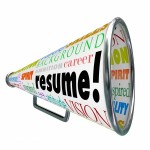
Widgetized Section
Go to Admin » Appearance » Widgets » and move Gabfire Widget: Social into that MastheadOverlay zone
Resume Strategies That Work
How to Make Your Resume Stand Out From the Rest
 Current economic conditions have millions of Americans out of work. If you’re one of them, you’re looking for an edge. You need a few strategies that will make your resume stand out from the pile so you can get your foot in the door. Here industry professionals offer some simple, practical resume strategies that can help you get noticed, get the interview and seal the deal.
Current economic conditions have millions of Americans out of work. If you’re one of them, you’re looking for an edge. You need a few strategies that will make your resume stand out from the pile so you can get your foot in the door. Here industry professionals offer some simple, practical resume strategies that can help you get noticed, get the interview and seal the deal.
Getting Noticed on a Job Board
If you want your resume to really stand out from the hundreds of thousands of other resumes on job boards, there are a few things to to keep in mind:
- Grammar and Punctuation – This may seem like common sense but you’d be surprised how many job board resumes are filled with simple (and sometimes profound) grammatical errors. Double, triple and even quadruple check your work. Have a friend or trusted coworker review your resume before posting. Your own eyes can fool you after a few edits. Also, spell-check doesn’t catch everything. You don’t want your prospective employer to read about how you, “revolved customer problems and inquiries” instead of resolving them.
- Keywords – More and more job boards are now giving jobseekers the opportunity to add keywords such as “finance expert” or “20 years administrative experience” to their profile, leading the right prospective employers to a candidate who suits their needs. Richard Zeitz, CEO of Purzue.comexplains, “With an interactive multimedia resume, like the ones offered by Purzue job seekers add video, audio and infographics to their resume, any of which will grab an employer’s attention.”
- Be Specific – Your resume will also have a better chance of standing out above the competition if it contains measurable results. Ronald Kaufman, author of Anatomy of Success asks this, “What have you increased or decreased that has contributed to the success where you have worked, in dollars, quantities, or percentages?” Have the information prospective employers are looking for before they ask the questions and you’ll be a step ahead of the game.
- Make Your Resume Match Your Experience – Younger candidates and those just out of school should focus on tailoring their resume to reflect their projects, accomplishments and community service. Older candidates and those with more work experience under their belts should focus more on achievements and progress. Another tip: Don’t “pad” your resume. It will always come back to bite you in the end.
Making Your Response Stand Out
One of the common mistakes among jobseekers sending their resumes to prospective employers is sending the same generic resume to everyone. Craig Vived of Vivaltainc.com says if your cover letters and resume all read the same, a prospective employer may wonder how serious you are about working for his company. He advises, “The “A” candidate will emphasize relevant accomplishments and minimize unrelated job duties.”
In a world where hundreds if not thousands of people are competing for the same job, a tailored cover letter and resume are your best bet. The more you know about the company you’re trying to get into, the more you can tailor your cover letter and resume to the job you’re applying for; emphasizing desired skills and leaving out others.
When you want to stand out from the rest, research is key. Take the time to really get to know your prospective company. Get on their website and pour over it. Read their mission statement and get to know their industry, people, products and competition. Pepper your cover letter and resume with keywords based on your findings. This can really give you an edge.
Connecting to the Hiring Manager
When connecting to the hiring manager personally, you want to grab his attention right away. This means an email with an engaging subject line that tells him exactly what you bring to the table.
Michael B. Junge, author of Purple Squirrel, explains it this way, “A good email submittal starts with an attention-grabbing subject line – one that is clearly relevant to the reader. Details like your name, goals and desire to be considered aren’t yet useful or relevant. The fact that you are an expert – or experienced, certified, senior, degreed, motivated, talented, etc – in a core skill related to the job is far more likely to be interesting to them.
Personally, I like to see a simple subject line to the effect of “Experienced (insert your title) for (insert the job title or number).” Short, sweet, and to the point. The email itself should include a brief but courteous introduction note and a few bullet points highlighting your qualifications relative to the specific role.”
Infographic Resumes – Do They Really Give You an Edge?
Infographic resumes are just what they sound like. They’re a combination of words, videos, graphics and photos designed to actively show a prospective employer what they bring to the table. Though they’re best-suited to graphic designers, artists, photographers and the like, more and more people, especially younger jobseekers, are trying them on for size.
Infographic resumes give an impression of well-roundedness. A prospective employer may feel as though they have the opportunity to “get to know” you before you ever walk through the door. If you plan to send an infographic resume, play it safe. Send a traditional resume along with it.
Whether you’ve been out of work for a few weeks or a few years, taking the time to make your resume stand out is well worth the effort. Be sure your resume is grammatically accurate and reflects your specific skill-set. Prospective employers want to know how you’ll fit into their company. Do the research. Tailor your cover letter and resume matching their needs with your qualifications.
If you’re in the art or design world, infographic resumes can showcase your talents in a fun, interesting way. However, avoid these types of resumes for an accounting or insurance position.
You’ll get there. Be sure to make use of keywords on job boards and don’t forget an eye-catching email subject line goes a long way. Making just a few simple changes to your resume can be the difference between getting passed over and getting the job.







You must be logged in to post a comment Login